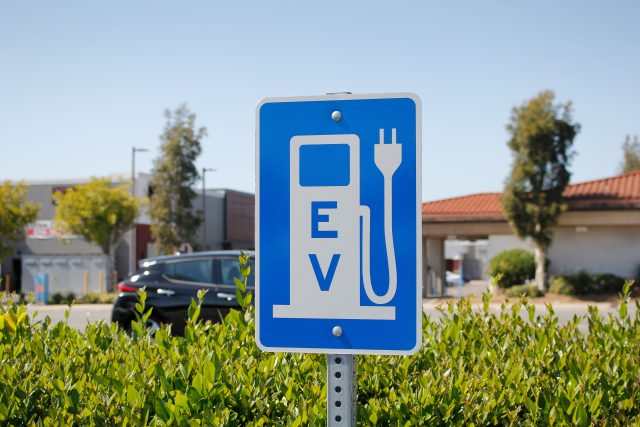
Colorado is making progress to clean emissions spewing from its roads and highways.
The Colorado Clean Car standard, adopted on Oct. 20 by the Air Quality Control Commission, aims to expand low- and zero-emission light-duty vehicles like passenger cars, SUVs and trucks to “improve air quality, save Coloradans money and address climate change.” The new standard strengthens the previous clean vehicle standard.
“Colorado is already among the states with the highest concentration of electric vehicles, and we don’t plan on hitting the brakes any time soon,” said Michael Ogletree, director of the state’s Air Pollution Control Division, in a press release. “Coloradans want low- and zero-emissions vehicles because they help them get where they’re going while breathing cleaner air and saving money. This standard will make clean vehicles more accessible across the state and improve air quality in local communities overburdened by pollution from busy roadways.”
The standard directs vehicle manufacturers to make more zero-emission light duty vehicles (battery-electric, plug-in hybrid electric, fuel cell electric) beginning with 2027 models and increasing every year through 2032, and to ensure 82% of light duty vehicles sold in the state are electric by 2032. It also creates more “proactive” emissions standards.
A fact sheet developed by the Sierra Club, National Resource Defense Council and Water Resource Advocates found the health, climate and economic benefits of the standard total to $74.5 billion, but the Sierra Club said in a press release it advocated for stronger standards.
Transportation is one of the largest sources of greenhouse gas emissions in the state. The goal, set in 2018 by the state, is to have nearly one million EVs on the road by 2030 and net-zero greenhouse gas emissions by 2050.
The standard will reduce exposure to tailpipe emissions in communities disproportionately impacted by pollution, many of which are located near busy roadways, according to the state.
The upward trend of electric vehicle purchases is continuing to rise, a report from the Colorado Automobile Dealers Association says.
The association’s October report found that through the first nine months of the year, battery electric vehicles accounted for 11.2% of the new car market, up from 7.8% last year. Data compiled by the association also showed purchases of electric, hybrid and plug-in-hybrid have been on the rise since 2020.
The state’s top selling electric vehicle from the last three months, Tesla Model Y, costs nearly $50,000 according to Kelley Blue Book. The federal government has a clean vehicle tax credit for qualified buyers up to $7,500, and Colorado taxpayers can be eligible for a $5,000 tax credit for the purchase of a new EV.














